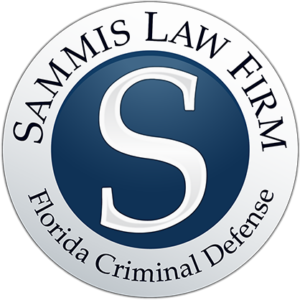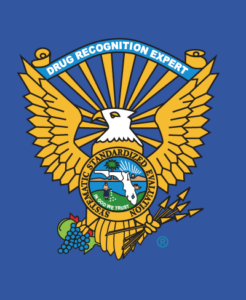DRE
DRE stands for a “drug recognition evaluator.” DRE’s are frequently called upon to differentiate between drug influence and medical and/or mental disorders. The certified DRE is a tool for combating the adverse impact of drug and alcohol-impaired driving.
Although the requirements for DRE school were previously more demanding, the requirements have been watered down over the years so that more officers might qualify.
The International Association of Chiefs of Police (IACP) is the regulating and certifying organization for the DRE program. DRE certification is valid for two years.
In order to maintain certification, DRE’s must conduct a minimum of four evaluations within the two years, submit a rolling log and current curriculum vitae, and attend eight hours of recertification training.
If an DRE is involved in your DUI case, your criminal defense attorney should file motions to exclude that testimony at trial.
Attorney for DUI DRE Cases in Florida
If your DUI case involves a report by a “drug recognition evaluator,” then contact an experienced criminal defense attorney at Sammis Law Firm. We help clients accused of impaired driving because of the consumption of drugs.
Whether this is your first DUI or a second or subsequent offense, we can help.
Contact us for a free consultation to discuss the facts of your case, the potential penalties that might apply, and the best ways to fight the charges aggressively.
Call 813-250-0500.
Is the DRE Evidence Admissible?
In some cases, the DRE evidence is admissible. As a general rule, the courts have found that the Frye test does not apply to DRE evidence because the general portion of the DRE protocol is not scientific.
The DRE protocol consists of a twelve step systematic assessment of the defendant’s vital signs and physical appearance, a physical examination, as well as other parts of the typical DUI investigation, including the standard field sobriety tests.
The physical examination of the DRE involves some techniques borrowed from the medical field, including:
- measuring pupil size;
- observing pupil reaction to light;
- taking blood pressure and pulse rate;
- inspecting the oral and nasal cavities; and
- touching the arm to determine muscle tone.
Since the tests, signs and symptoms of the protocol are within the common understanding of the average layman, the general portion of the protocol are not “scientific” within the meaning of Frye.
The components of the DRE testing protocol include:
- breath alcohol test;
- interview of the arresting officer;
- preliminary examination and first pulse;
- eye examination;
- divided attention psychophysical tests;
- vital signs and second pulse;
- dark room examinations;
- examination for muscle tone;
- check for injection sites and third pulse;
- suspect’s statements and other observations;
- opinions of the evaluator; and
- toxicological examination.
The fact that some of the examinations in the protocol are borrowed from the medical profession does not elevate the protocol to scientific status. Williams v. State, 710 So.2d 24 (Fla. 3d DCA 1998).
The DRE protocol is based on the fact that the consumption of alcohol and/or drugs produces readily observable and distinguishable psychophysical signs and symptoms.
Two Phases of Training to Become a DRE
According to the application for the FLORIDA DRUG RECOGNITION EXPERT SCHOOL, to receive certification as a DRE, two phases of training must be completed:
- ACADEMIC TRAINING:
- The academic training phase is typically conducted over nine days (for a total of 72 hours of training).
- The training includes covering topics in physiology, vital signs, standardized field sobriety testing (SFST), as well covering material on each of the seven categories of the drugs of abuse.
- The training includes two written examinations, an SFST proficiency examination and five written quizzes.
- Students must achieve a minimum of 80% on the two examinations (Pre-School Post Test & DRE School Post Test) and must demonstrate proficiency in administering SFST’s in order to progress to the next stage of training.
- Students who cannot successfully pass this testing cannot continue in the program.
- CERTIFICATION PHASE:
- After successfully completing the academic portion, the students must complete the certification phase.
- The student is responsible for completing the certification requirements within three months following the DRE school.
- These requirements include conducting a minimum of 12 drug influence evaluations while under the supervision of a DRE instructor, identifying subjects under the influence of three of the seven drug categories, and attaining a 75% toxicological confirmation rate.
- In addition, the student must maintain a progress log, rolling log and submit a curriculum vitae.
- Finally, the student must pass a comprehensive final knowledge examination, and obtain the written endorsement of two certified DRE instructors.
Requirements for DRE Training in Florida
To be considered for DRE training, the applicant must meet the following required criteria:
- a minimum of three years of service (excluding reserve time);
- be off probation with their law enforcement agency;
- working in patrol with their agency;
- SFST trained and proficient;
- reasonable background and experience level of making DUI arrests;
- a written endorsement/recommendation from your local prosecutor;
- submit a minimum of two actual DUI arrest reports for review;
- be willing and able to appear before an oral interview board who will assess your background and qualifications; and
- have attended Advanced Roadside Impaired Driving Enforcement (A.R.I.D.E.).
Additional Resources
Florida’s Drug Recognition Expert (DRE) Program – Visit the website of the Institute of Police Technology and Management (IPTM) to learn more about Florida’s drug recognition program and what it takes to become certified as a DRE. Find information on attending school to become a drug recognition expert, DRE recertification training, and DRE instructor courses. Find links to the International Drug Evaluation and Certification Program website. Find a list of regional DRE coordinators through the state.
International DREs – Visit the website of the International Association of Chiefs of Police (IACP) which coordinates the International Drug Evaluation and Classification (DEC) Program with support from the National Highway Traffic Safety Administration (NHTSA) of the United States Department of Transportation. The DEC Program not only certifies officers as DREs, it also educates prosecutors and toxicologists on the DRE process and the drug categories. A drug recognition expert/evaluator (DRE) is a police officer trained to recognize impairment in drivers under the influence of drugs other than, or in addition to, alcohol.
This article was last updated on Friday, September 13, 2019.
















